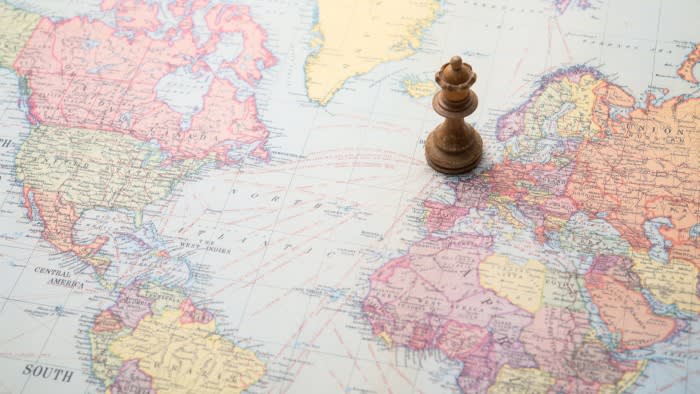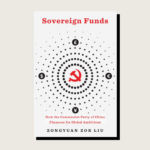Summary by Geopolist | Istanbul Center for Geopolitics:
The article discusses Europe’s current geopolitical position and offers recommendations for strengthening its role on the global stage amid rising influences from the US and China.
Key Points:
- Geopolitical Context:
- US Dominance: The United States holds significant global influence through its economic power, industrial policy, technology, and cultural reach.
- China’s Rise: China is methodically increasing its global influence through economic strength, strategic investments, and assertive tactics.
- Europe’s Position:
- Current Status: Europe finds itself in a precarious position, struggling to assert itself due to internal divisions, national interests, and bureaucratic challenges. Once a dominant force, Europe now risks being sidelined.
- Need for Boldness: To regain its strategic importance, Europe must adopt a more assertive and cohesive approach.
- Priorities for Europe:
- Self-Reliance: Europe needs to ensure control over its security, defense, and critical infrastructure, including energy grids, transportation, and communication systems.
- Green Energy Transition: Despite progress, Europe lags behind global competitors like China and the US in green energy. To catch up, Europe must implement a more action-oriented energy strategy, increase incentives, and simplify funding processes for large-scale renewable projects.
- Strategic Recommendations:
- Incentivizing Green Energy: Europe should enhance its green energy policies by boosting investments, streamlining fund disbursement, and focusing on ambitious projects. The EU’s “Fit for 55” framework is a good start, but more incentives are needed.
- Tech and Innovation: Europe must address its lag in tech innovation compared to the US and China. This includes increasing funding for research and development, creating favorable conditions for tech investments, and reducing restrictive regulations.
- Strengthening the Single Market: Improving internal trade, removing barriers, and fostering deeper economic integration are crucial. Europe should focus on developing competitive companies and avoid regulations that disadvantage businesses and hinder investment.
- Global Leadership:
- Strategic Autonomy: Europe must aim for “open strategic autonomy” by consolidating its resources, enhancing regulatory efficiency, and investing boldly in critical areas.
- Avoiding Vulnerability: Without decisive action, Europe risks becoming a passive player in global geopolitics. It needs to unify its efforts and assertively position itself to influence the international landscape.
Conclusion: Europe is not in an untenable position yet, but it faces significant challenges. By consolidating its efforts, streamlining regulations, and investing strategically, Europe can reassert itself as a major global player and avoid becoming an observer in the geopolitical arena.
For more details, read the full article here below.
Europe needs to sharpen its geopolitical chess game
In the high-stakes geopolitical chess game, Europe sits at a critical juncture. The US dominates. Its economic, large-scale industrial policy, tech and cultural influence spans continents. China advances methodically. Its economic prowess, decisive investments and assertive approach make it ever more influential. Europe, once a queen, now finds itself a pawn — moving with caution, struggling to achieve the unity needed to assert itself, often caught in national interest clashes and bureaucratic intricacies.
To succeed, Europe must be bolder. We will soon have a new European Commission and parliament and I strongly believe that Europe can transform, surprising everyone on the board.
The foundation for success is a Europe that controls its own destiny. The pandemic, geopolitical uncertainty, war and the climate crisis mean that the security, safety, and resilience we have long taken for granted can no longer be assumed. Investment in our defence and critical infrastructure is a non-negotiable priority, as is ensuring control over our energy grids, transportation networks, supply chains and communication systems.
But what should Europe do to quickly adapt to the evolving board? I believe that further incentivising the green energy transition, easing the implementation of new technology, and once again making the region a strong base for companies to innovate would be among the most transformative moves.
On the green agenda, we have witnessed substantial progress in the past five years with forward-thinking regulation charting the path to net zero. But global competitors are pulling ahead. In China, scalable green fuel solutions are hitting the market at an enviable pace while financial incentives and less red tape are helping companies expand their lead. Momentum is also building in the US, with the Inflation Reduction Act. In response, Europe needs an action-orientated energy strategy that goes beyond national divides and translates research, framework conditions and political visions into reality.
Russia’s invasion of Ukraine has shown the risk of energy dependency. Europe should now leverage the energy transition to create strategic autonomy. The EU’s “Fit for 55” emissions reduction framework lays out a solid foundation. But now it is time for more “carrot” — incentives and investments in industries that will dominate in the future. Simplifying the disbursement of funds and moving from financing one-off pilots towards more ambitious projects would be obvious levers to aid the production of renewable energy and green fuel at scale.
European companies like Maersk are making substantial investments in new technologies and assets that will accelerate the green transition. But a committed Europe also has a key role to play on the global stage. For example pushing the International Maritime Organization to agree on a price mechanism that will see those emitters who sail on fossil fuels pay extra while subsidising those sailing on green fuels.
Historically, Europe has been a thriving hub for innovation. However, productivity growth in the US has been more than double that of the euro area and the UK over the past two decades. US investment into innovation and research is also nearly twice that of the EU, while competitors across the Atlantic are propelled forward by Silicon Valley powerhouses and a thriving start-up ecosystem. China is making massive investments in AI, 5G and quantum computing.
While Europe boasts a rich history of scientific invention, the region remains cautious on tech, grappling with bureaucracy and restrictive regulations. Commanding new technologies is essential for anyone aspiring to tilt the playing field. Rather than adding more regulation, Europe should increase funding and incentives for research and development and establish more attractive conditions for investing.
If Europe is to achieve ‘open strategic autonomy’, it must switch on its private sector. One place to start would be to strengthen the single market, removing internal trade barriers and going for deeper integration. Europe should also move from a defensive posture of regulations and tariffs to developing competitive companies. We welcome the desire to address the bureaucratic obstacles that hinder business and must avoid self-sabotage through legislation that puts our businesses at a disadvantage and discourages investment.
As of now, Europe is not in check, let alone checkmate. But its lack of determination leaves it vulnerable. It must consolidate its pieces, streamline regulations, deepen integration and invest boldly. Otherwise, we risk becoming mere spectators in the high-stakes geopolitical match.
Source: Financial Times







